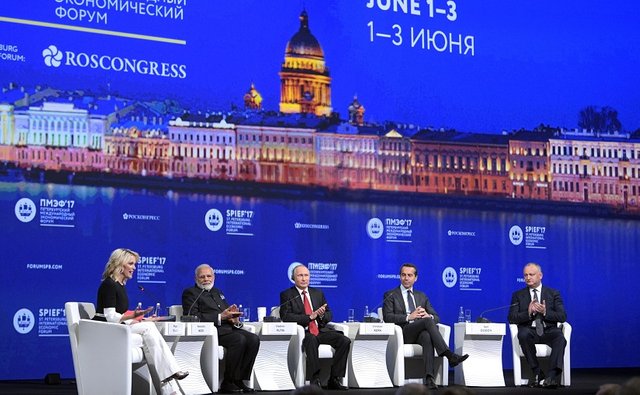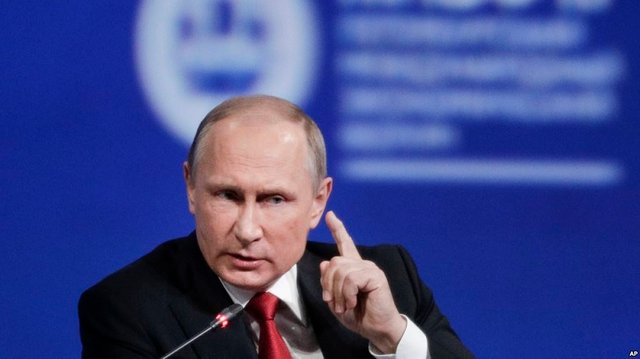Is Russia Planning on Using Ethereum to Dethrone SWIFT?

The creation Ethereum has sparked international interest into its capabilities as a platform for digital and crypto currencies. It has demonstrated superior functionality over its closest rival, the Bitcoin Network, through a variety of features such as smart-contract scripts, as well as its quicker ability to distribute resources over its computing network. Another key difference is its ability to serve as a platform for multiple digital currencies, as opposed to the Bitcoin Network, which only services Bitcoin.
This particular quality has caused Ethereum to catch the eye of none other than Vladimir Putin, President of the Russian Federation. Putin personally held conversations with Vitalik Buterin, Ethereum's inventor and co-founder, on the sidelines of Russia's annual St. Petersburg economic forum. “The digital economy isn’t a separate industry, it’s essentially the foundation for creating brand new business models,” Putin was quoted as saying.
Russia, currently under economic sanctions imposed by the U.S and E.U, heavily relies on SWIFT technology for national and international banking transactions. SWIFT is a messaging system in which banks conduct day to day financial transactions between themselves. It is currently the international standard for financial messaging and transactions.
Many have considered severing Russia's access from SWIFT as being a sort of diplomatic "nuclear option," a last resort move that would intend to isolate and cripple Russia economically, in order to pressure them into ceasing their independent international and domestic policies. Russia has reportedly prepared itself for this event, should its access to the system be cut off.

Putin may see Ethereum's opensource blockchain concept as an efficient alternative to SWIFT's financial messaging system. The Deputy Governor of Russia's central bank, Olga Skorobogatova, has already confirmed that country's central bank has deployed an Ethereum-based blockchain, as a pilot project to process online payments and verify customer data. Some of Russia's largest banks, such as Sberbank PJSC, are participants in this pilot program.
Ethereum's smart contract feature also would also reduce demand for intermediary services such as escrows, as well as public notaries. This would facilitate the transaction of funds in a more cost efficient manner for many parties involved.
“Blockchain may have the same effect on businesses that the emergence on the internet once had -- it would change business models, and eliminate intermediaries such as escrow agents and clerks...If Russia implements it first, it will gain similar advantages to those the Western countries did at the start of the internet age.” said Vlad Martynov, adviser to The Ethereum Foundation, a non-profit that backs the network.
Blockchain based networks, such as Ethereum, could serve as both a potential hedge and safeguard against the threat of being cut from SWIFT, while also potentially increasing Russia's competitive business advantage independently of whether it is cut from the SWIFT network.
SWIFT is currently itself exploring the use of blockchain technology, however its forays into this have currently not progressed beyond the Proof of Concept phase.
This post will be featured on Informaza.com at a later time.
Disclaimer: I am just a bot trying to be helpful.